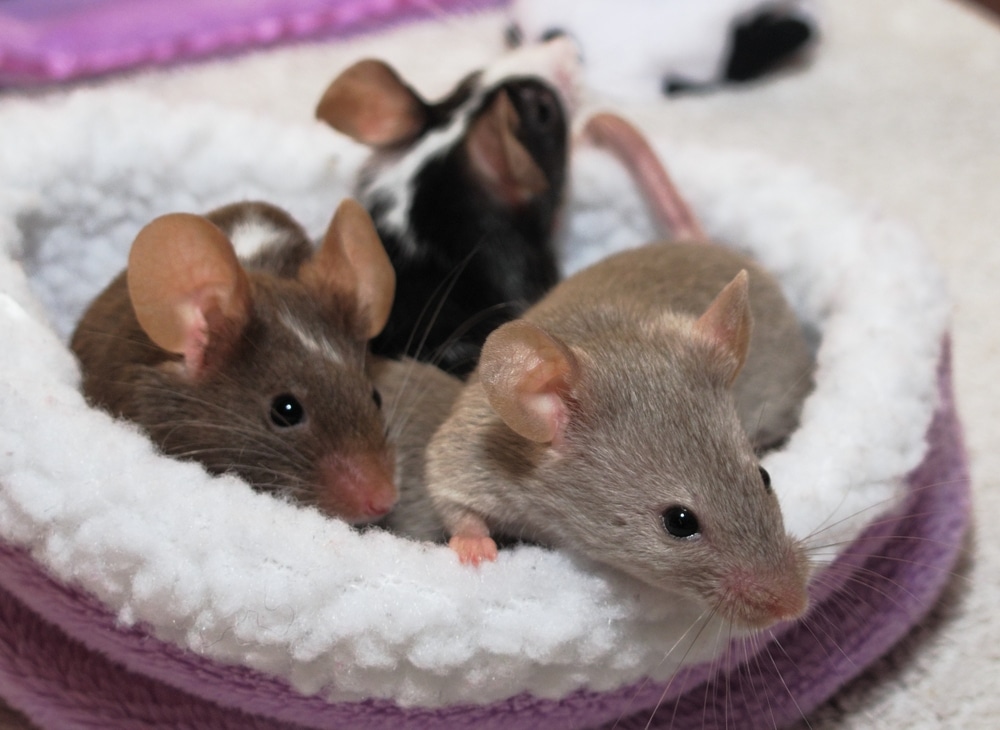Winnebago County Animal Services adopts Mice to be family pets. Under no circumstances should a Mouse be used for food for other animals; for experimentation or laboratory work; or for any other use other than as a family pet. WCAS strictly enforces this policy under the terms of the adoption contract.
Facts About Mice
- Mice live between one and two years.
- Mice will do well on a commercial rodent food, but will enjoy occasional supplements of fruit, vegetables and some pet protein or an insect. Be aware that to get more nutrition, mice may eat their own feces.
- Mice have excellent (ultrasonic) hearing and sense of smell.
- Mice do not vomit.
Behavior
Well socialized, mice are easily picked up using both hands to support their body. They enjoy handling and exploring and rarely bite. They should not be picked up by their tails.
Mice are active and inquisitive, especially in the evening and at night. They are very social and like to live in pairs or groups, can jump well and love to climb. Mice that grow up together will not fight, but a mature mouse added to a group may be met with resistance and fighting is likely to occur.
Male mice will fight in a confined space. Male mice give off a strong smell, however, mice are clean animals and are always self-grooming. Females do not have the odor males might have.
Health Care
Some signs that may indicate ill health for mice are: sneezing, wheezing, rattling, thin condition, ruffled stand-up coat, hunched posture, listlessness, discharge from eyes or nose, diarrhea, bloated belly and cuts or open wounds. If you notice any of these signs you should see your veterinarian immediately.
Regularly check eyes, nose, ears, teeth, weight, and droppings.
Source: ARL – Animal Rescue League of Iowa, Inc. 2018 – https://www.arl-iowa.org/
